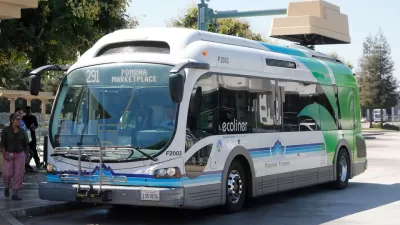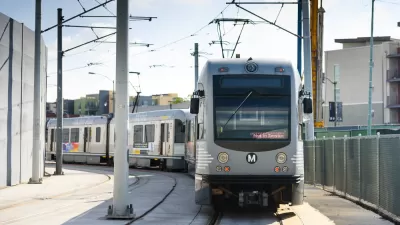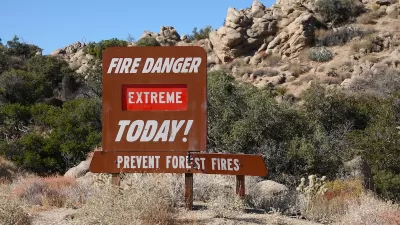A new survey identified the top climate strategies favored by municipalities around the country.

Nearly 60 percent of cities told a national survey they are planning a climate action in the coming year, and 60 percent said they had launched or expanded a climate program in the last year. The survey was conducted by the Center for Climate and Energy Solutions and the U.S. Conference of Mayors, and covered 158 cities of different sizes across 39 states.
Transportation, a top source of greenhouse gas emissions in the country, was one of the most common areas for local green initiatives. Most cities are already promoting bus transit and bike lanes as alternatives to driving, while cities looking to expand transportation options are primarily considering bike- and scooter-sharing. Jason Plautz in Smart Cities Dive summarizes other common initiatives:
City-level action has taken the form of green vehicle purchasing (according to the USCM survey, 60% of cities have clean vehicle programs), energy efficiency for buildings (70% of cities have set policies for new and existing buildings) and adoption of alternative transportation options (22% of respondents are exploring bike-sharing). Renewable energy purchasing remains a dominant strategy, especially since cities often have greater control over their utility contracts.
The survey also notes that nearly all cities reported seeing the impacts of climate change first-hand. "The most prevalent changes cities reported during this time include heavy rain events or inland flooding (76 percent of cities), heat waves (65 percent), and drought (51 percent). Additionally, an alarming 18 percent identified wildfires as a changing impact," the report says.
FULL STORY: Survey: 57% of cities plan climate action in next year

Alabama: Trump Terminates Settlements for Black Communities Harmed By Raw Sewage
Trump deemed the landmark civil rights agreement “illegal DEI and environmental justice policy.”

Planetizen Federal Action Tracker
A weekly monitor of how Trump’s orders and actions are impacting planners and planning in America.

The 120 Year Old Tiny Home Villages That Sheltered San Francisco’s Earthquake Refugees
More than a century ago, San Francisco mobilized to house thousands of residents displaced by the 1906 earthquake. Could their strategy offer a model for the present?

Ken Jennings Launches Transit Web Series
The Jeopardy champ wants you to ride public transit.

BLM To Rescind Public Lands Rule
The change will downgrade conservation, once again putting federal land at risk for mining and other extractive uses.

Indy Neighborhood Group Builds Temporary Multi-Use Path
Community members, aided in part by funding from the city, repurposed a vehicle lane to create a protected bike and pedestrian path for the summer season.
Urban Design for Planners 1: Software Tools
This six-course series explores essential urban design concepts using open source software and equips planners with the tools they need to participate fully in the urban design process.
Planning for Universal Design
Learn the tools for implementing Universal Design in planning regulations.
Clanton & Associates, Inc.
Jessamine County Fiscal Court
Institute for Housing and Urban Development Studies (IHS)
City of Grandview
Harvard GSD Executive Education
Toledo-Lucas County Plan Commissions
Salt Lake City
NYU Wagner Graduate School of Public Service





























